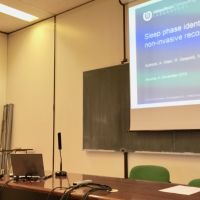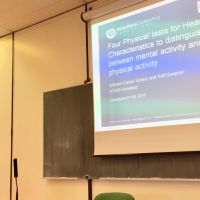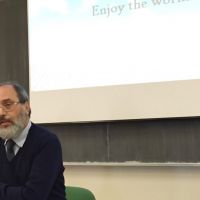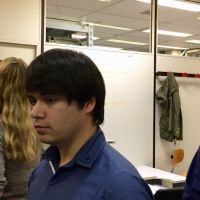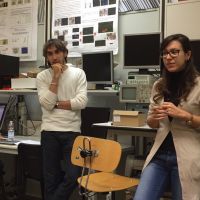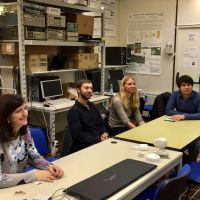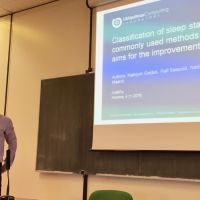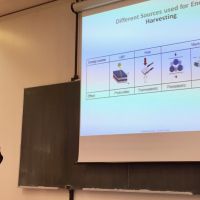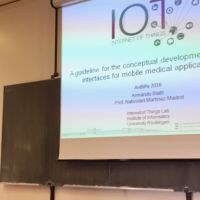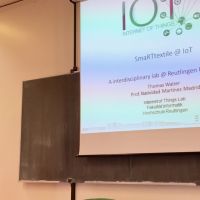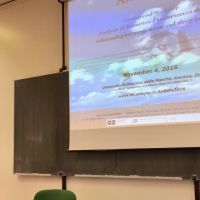Workshop on Analysis of biometric parameters to detect relationships between stress and sleep quality
Ancona, November 2016. The cooperation maintained over decades between Università Politecnica delle Marche, Reutlingen Unievrsity and HTWG Konstanz launched a workshop on biometric parameters to detect relationships between stress and sleep quality. Researchers from these three universities and several guests from Ancona presented their research activities. The objective of this workshop is to renew a research cooperation between the labs headed by Prof. Massimo Conti (UPM), Prof. Natividad Martínez Madrid (Reutlingen University) and Prof. Dr. Ralf Seepold (HTWG Konstanz). In parallel, young researchers from the German universities are guests in Ancona to push common research between the three groups.
Individual stress as well as frequent sleep disorder seems to be related with chronicle diseases like diabetes, cerebrovascular disease or other psychiatric illnesses. Besides capturing a huge amount of data, it needs to be interpreted and compared to patterns suited to detect stress and sleep quality in real-time. One are of research is to detect and analyze a relationship between stress and healthy sleep. A second domain covered by the workshop is to derive individual recommendations to improve a health life. A relevant domains are models, systems, technology and services for Ambient Intelligence and Ambient Assisted Living to improve the quality of life, especially for people with "fragility" to obtain an active longevity.
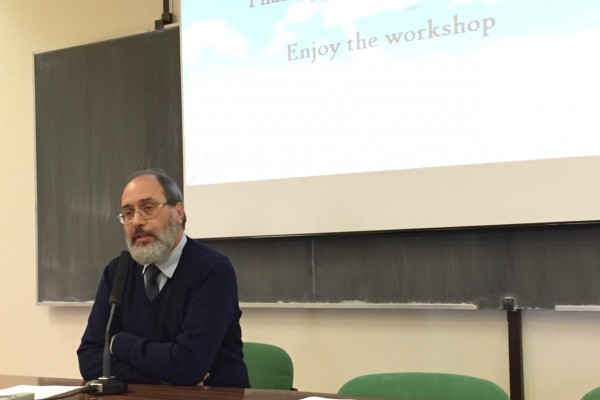
Welcome from the Director Prof. FRANCESCO PIAZZA, Dipartimento di Ingegneria dell'Informazione.
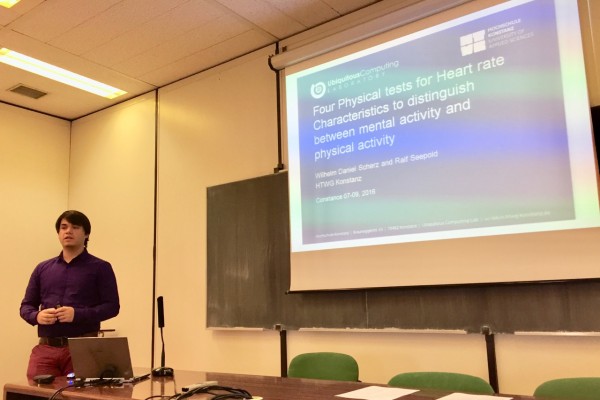
Wilhelm Daniel Scherz presented his recent achievements on Four physical tests for heartrate characteristics to distinguish between mental and physical activity.
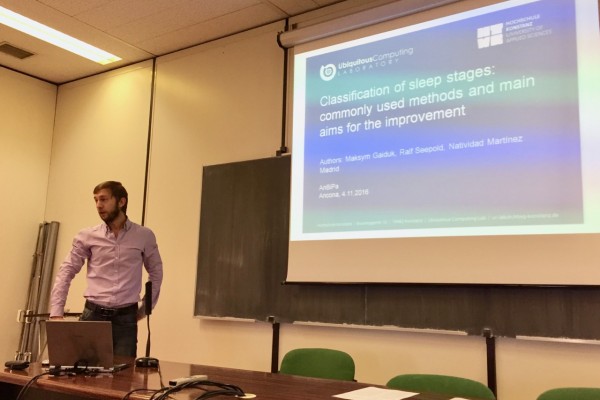
Maksym Gaiduk reports on Sleep is one of important parts of human’s life. Two main parameters of sleep can be defined: sleep quality and sleep duration. The first step of the sleep analyse is to categorize the sleep into the stages. There are few different methods of sleep classification, which aim is to increase accuracy and/or make using of utilised devices more comfortable for end-user and less dependent from medical staff.
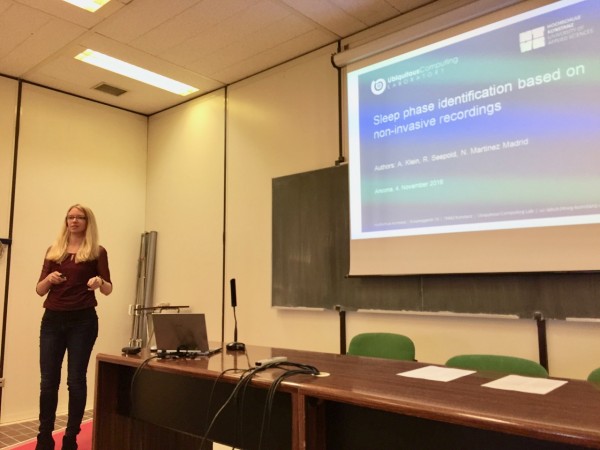
Agnes Klein presented her intermediate rsearch results in Sleep phase identification based on non-invasive recordings and multinomial logistic regression analysis. A Sleep study is a test used to diagnose sleep disorders and is usually done in sleep laboratories. The golden standard for evaluation of sleep is overnight polysomnagraphy (PSG). Unfortunally, In-lab sleep studies are expensive and complex procedures. Furthermore, with an minimum of 22 wire attachments to the patient for sleep recording, this medical procedure is invasive and unfamiliar for the subjects. To solve this problem, low-cost home diagnostic systems, based on non-invasive recording methods is proposed.


